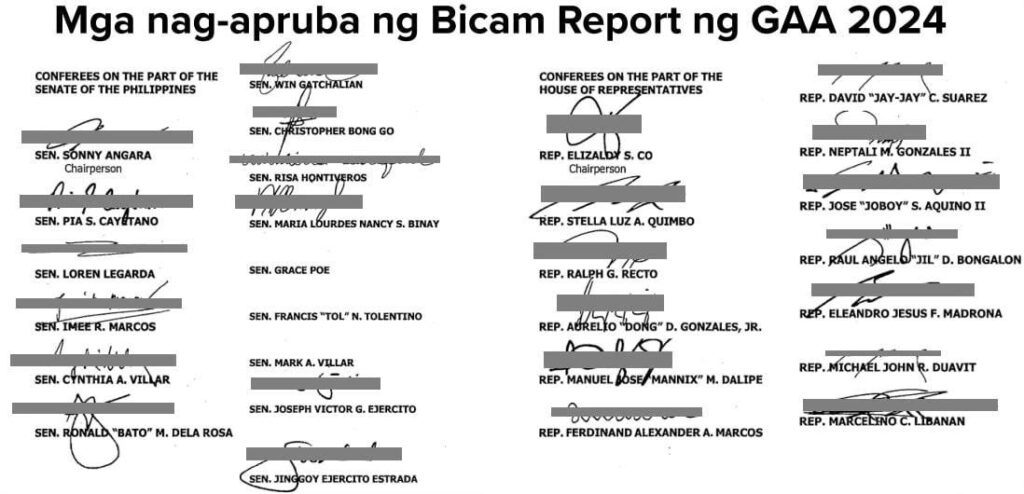The Commission on Elections (Comelec) has been an expert in stonewalling, from preventing the people to understand how more than 20-million votes swamped the poll body’s computers by 8:12 p.m. on May 9, 2022, even before most polling precinct had closed, to the rejection of Smartmatic’s offer to supply the voting machines and the award of a supply deal to Miru Systems for the May 12, 2025 elections.
Comelec Chairman George Erwin Garcia vowed to be transparent and to release the records of the 20-million vote dump, which pleased insiders, only to make a 180-degree turn on the issue that former Comelec commissioners and computer experts wanted to be explained fully to the electorate. Comelec also refused to open the ballot boxes for selected municipalities to verify whether digital fraud had occurred or not. Garcia is standing pat on yet another issue: The withdrawal of St. Timothy Construction Corp. as the joint venture (JV) partner of Miru Systems in October 2024 has not been adequately explained by the Comelec since such withdrawal technically upsets the 60:40 ratio required of the JV.
Sarah Discaya, now running for Pasig City mayor against Vico Sotto, is the president and chief financial officer of St. Gerrard Construction General Contractor and Development Corp. The company, according to Sotto, is the “alter-ego” of St. Timothy Construction Corp. Following the withdrawal of St. Timothy from the JV with Miru Systems, the two companies left to supply the voting machines are Integrated Computer Systems, Inc. and Center Point Solutions and Technologies, Inc. Latest reports indicated that the bulk of the voting machines have been delivered. Aside from Sotto and the Pasig City residents, journalists, too, have questioned the capability of Miru Systems and its remaining partners to handle the management of the machines and guarantee that no digital fraud would happen again.
On Oct. 9, 2024, the “Right to Know. Right Now!” (R2KRN) coalition, led by Malou Mangahas, former Education Undersecretary Nepomuceno Malaluan, filed a freedom of information (FOI) plea for the Comelec to provide it with documents proving that the P18-billion contract of the Miru JV abided by constitutionally mandated 60:40 rule. R2KRN noted the Comelec only partially responded to its request, while Miru was evasive. R2KRN followed up on the matter a month later, and still, the poll body and the JV did not provide the details the FOI request sought. The same month, the group, bolstered by Rowena Paraan, Karol Ilagan, Jaemark Tordecilla, Paul Soriano, and UP Prof. Maria Diosa Labiste, as well as the Philippine Center for Investigative Journalism (PCIJ), National Union of Journalists of the Philippines (NUJP), Center for Media Freedom and Responsibility (CMFR), and Philippine Press Institute (PPI), filed a petition for review and mandamus before the Supreme Court (SC.)
On April 16, 2025, Comelec told the SC that R2KRN had requested disclosure of a risk assessment report prepared by Miru-JV on the implications of the partner’s withdrawal and contingency plans, along with a breakdown of each remaining partner’s financial, technical, and operational contributions. Comelec insisted it could not be compelled to release these documents, arguing they were not in its possession and they were not required to be filed under existing procurement laws. Yet, Comelec said it generously provided R2KRN with information about the adjusted contributions of the Miru-JV partners and a new financial capability certificate. “Thus, public respondent Comelec cannot be said to have breached petitioner R2KRN’s constitutional right to information,” it said.
Comelec said in its 50-page reply that it had complied with all its FOI obligations relative to R2KRN’s request on the Miru JC’s P17.99-billion automation contract for the 2025 elections. The poll body argued the constitutional right to access official records, documents and data related to government actions and policymaking is not absolute and is subject to legal limitations. “While Section 7, Article III of the 1987 Constitution recognizes the people’s right to access official records, documents and papers pertaining to official acts, transactions, or decisions, as well as to government research data used as basis for policy development, this right is subject to such limitations as may be provided by law, such as those imposed under Sections 20 and 21 of Public Respondent Comelec’s FOI Manual.”
There is nothing mysterious or sinister in the R2KRN’s FOI request since it has been clearly established that the withdrawal of St. Timothy from the JV amounted to a clear risk that the Miru JV may not be able to fulfill its obligations with the Comelec, which had already paid P2-billion to the JV before St. Timothy withdrew. This withdrawal is invested with public interest as it threatens the very conduct of the May 12, 2025 midterm elections. Note that a slew of allegations against the capability of Miru had been raised by politicians who claimed the deal called for renting the automated counting machines, which means the republic will pay P18 billion to the South Korean company through the JV. joint venture R2KRN claimed that the document released did not show the detailed allocation of the remaining partner’s financial, technical, and operational contributions or any applicable contributions of money, property, or industry, along with their monetary valuation and the resulting percentage interest of each remaining partner. It asked the Comelec whether Miru’s performance bond was still valid despite the withdrawal of St. Timothy.
Comelec signed the P18-billion Miru JV on Mar. 11, 2024 but the SC ruled on April 17, 2024 that the Comelec committed grave abuse of discretion in disqualifying Smartmatic-TIM Corp. from participating in the bidding process for the 2025 automated election system (AES) without giving it the chance to submit any bid. Comelec also started printing ballots after disqualifying a congressional candidate and several others, but the SC ordered the printing stopped until the names of the disqualified aspirants were restored, causing a loss of P150 million for Comelec. Meanwhile, Comelec has allowed survey results to be published nearly daily, all of which are clearly meant to create a bandwagon effect using spurious results. Will the Comelec come to its senses and ban them altogether three weeks before the elections? (DIEGO MORRA)




